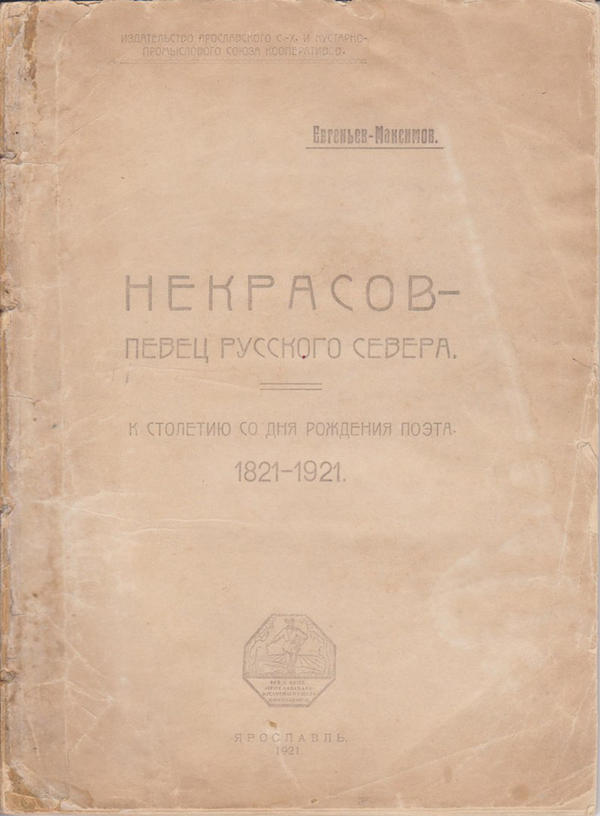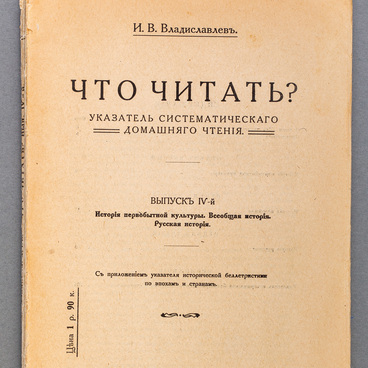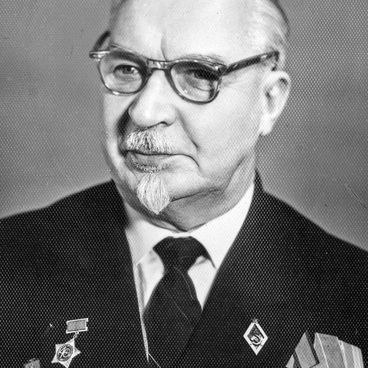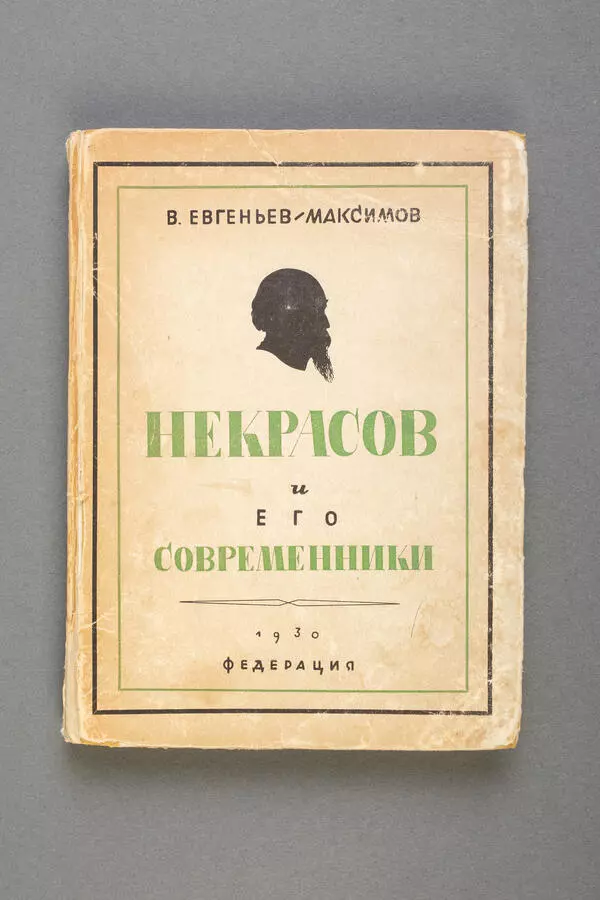Vladislav Yevgenyevich Yevgenyev-Maksimov (his real surname Maksimov) devoted over 50 years of his life to pedagogy and science. The central place in his research is occupied by works dedicated to Nikolay Alekseyevich Nekrasov. Yevgenyev-Maksimov was born in 1883 in the settlement of Demidovka, Kursk Governorate. The interest in literature, the Nekrasov theme in particular, was instilled in him as early as childhood by his father — a teacher with Narodnichestvo views.
After graduating from a school in Demidovka, Vladislav entered the private gymnasium of Yakov Grigoryevich Gurevich in Saint Petersburg, where he finally found his calling as a philologist.
In 1902, he presented his first scientific report on Nekrasov, declaring equal interest in Nikolay Nekrasov as a poet and journalist, calling him a “talented editor” and noting the enormous social significance of the “Sovremennik” (Contemporary) and “Otechestvennye Zapiski” (Notes of the Fatherland) magazines that he headed.
In 1906, Vladislav Yevgenyev-Maksimov graduated from Saint Petersburg University and became a teacher at the Tsarskoye Selo Realschule. After he read Nikolay Nekrasov’s poem “The Railway” at a literary evening, the young philologist was made to quit but he still managed to clearly indicate his democratic position.
As the founder of the Nekrasov studies, the researcher worked a lot in chanceries and libraries, communicated with Nikolay Nekrasov’s contemporaries, studied his manuscripts and documents, and compared and analyzed information about him. In his opinion, the poet’s demonstrative civic position was not “artificially” liberal but rather was a quality inherent in his art since the earliest works.
In 1921, Vladislav Yevgenyev-Maksimov “congratulated” his beloved author on his centenary by holding anniversary celebrations, where he participated as a lecturer and a journalist and organized thematic literary evenings and a historical and literary exhibition. That same year, the first comprehensive study on the Nekrasov studies was published — Yevgenyev-Maksimov’s book called “Nekrasov — Singer of the Russian North. To the Centenary of the Poet’s Birth. 1821–1921”.
Between 1923 and 1924, Vladislav Yevgenyev-Maksimov managed to organize an educational exhibition dedicated to Nikolay Nekrasov and then established a memorial exhibition in a museum. Later, it gave rise to the Nekrasov Museum-Apartment in Leningrad.
After graduating from a school in Demidovka, Vladislav entered the private gymnasium of Yakov Grigoryevich Gurevich in Saint Petersburg, where he finally found his calling as a philologist.
In 1902, he presented his first scientific report on Nekrasov, declaring equal interest in Nikolay Nekrasov as a poet and journalist, calling him a “talented editor” and noting the enormous social significance of the “Sovremennik” (Contemporary) and “Otechestvennye Zapiski” (Notes of the Fatherland) magazines that he headed.
In 1906, Vladislav Yevgenyev-Maksimov graduated from Saint Petersburg University and became a teacher at the Tsarskoye Selo Realschule. After he read Nikolay Nekrasov’s poem “The Railway” at a literary evening, the young philologist was made to quit but he still managed to clearly indicate his democratic position.
As the founder of the Nekrasov studies, the researcher worked a lot in chanceries and libraries, communicated with Nikolay Nekrasov’s contemporaries, studied his manuscripts and documents, and compared and analyzed information about him. In his opinion, the poet’s demonstrative civic position was not “artificially” liberal but rather was a quality inherent in his art since the earliest works.
In 1921, Vladislav Yevgenyev-Maksimov “congratulated” his beloved author on his centenary by holding anniversary celebrations, where he participated as a lecturer and a journalist and organized thematic literary evenings and a historical and literary exhibition. That same year, the first comprehensive study on the Nekrasov studies was published — Yevgenyev-Maksimov’s book called “Nekrasov — Singer of the Russian North. To the Centenary of the Poet’s Birth. 1821–1921”.
Between 1923 and 1924, Vladislav Yevgenyev-Maksimov managed to organize an educational exhibition dedicated to Nikolay Nekrasov and then established a memorial exhibition in a museum. Later, it gave rise to the Nekrasov Museum-Apartment in Leningrad.




